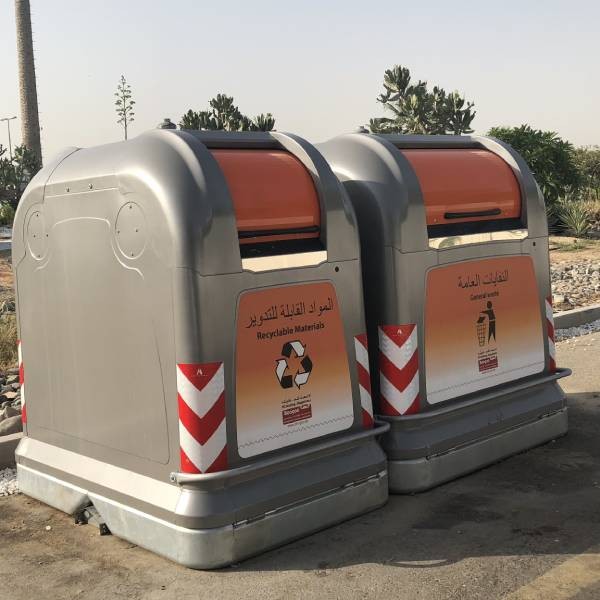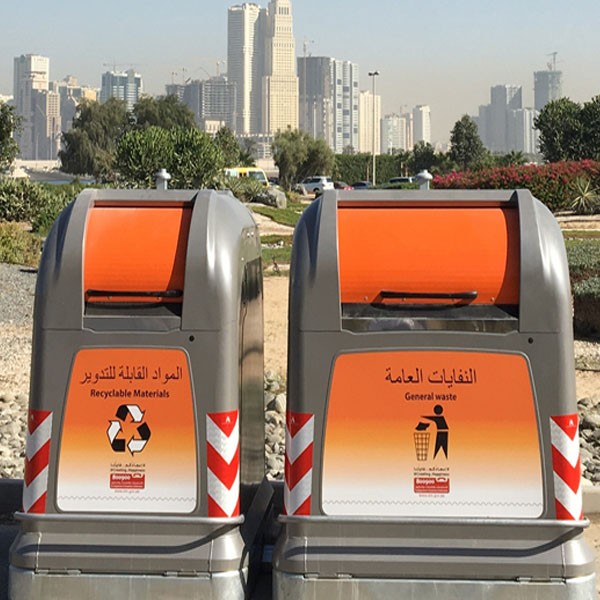Healthcare and government facilities across the world have been facing increased issues when it comes to handling the increase in waste quantities due to the COVID-19 outbreak. Waste management has always been a concern, and now, waste management equipment suppliers will have their hands full, dealing with it for a long time.
The biomedical waste is treated and disposed of either by contained treatment plants or deep burials. Along with virus-laden waste from diagnostic, treatment, and quarantine facilities, the more significant concern arises from the household waste of those presenting minor or negligible symptoms.
There is also an urgent need for correct segregation of hazardous household waste in proper waste management containers, and its consequent management. Equally important is the suitable disposal of Personal Protective Equipment (PPE) coming from hospitals and other medical facilities.
So, there is an overpowering need for citizens to be educated about segregated and protected disposal of their household waste. For further precautions, dry waste should be quarantined within premises for a suitable period before removal, allowing the virus to die.
When it comes to the workforce that performs the waste collection, sorting and recycling, if not adequately trained or their safety issues not addressed, their health might be put at risk.
Also critical is the need for appropriate monitoring, analysis and verification mechanisms for hazardous waste management and to secure proper monitoring of their execution in the ongoing high-risk circumstances.
For the waste management ecosystem to react efficiently, corporate social responsibility drives, non-governmental organizations, along with waste management equipment suppliers must come together. The collaboration can ensure that the sanitation staff and on-ground health workers have adequate access to PPE kits, and also help control the flow of waste safely during this pandemic.
With the onset of COVID-19, nations put their plastic-related policies on hold. Most of the global response dissuaded the practice of many reusable products to curb the spread. This prompted restrictions to be lifted from the use of single-use plastic bags and containers, causing these products to make a comeback.
The demand for personal protective equipment (PPE) has only increased plastic waste. From face guards to gloves and masks, everything was being generated and disposed of, at an unrivalled speed. Much of that waste needs to be recycled or correctly disposed of with the help of waste management equipment, to stop it from countering previous environmental efforts.
The Only Way Forward
While it doesn’t seem probable that single-use plastics will be here to stay in current quantities, progress toward decreasing their use will indeed be delayed.
Change is still achievable if governments, businesses, and consumers are prepared to cooperate on innovative approaches to address the impending global crisis and get the process back on track. Bluestream is already working to support the reforms required with waste management containers and other equipment that will be needed for such a feat!
Not just innovation, but add to that proper waste management and extensive policy reforms, along with evidence-based decision-making, will need to be our way forward. And all this must be done within the parameters of our Next Normal, where hygiene takes centerstage. suitable materials and products for these specific projects. Ensuring that its wide range of recycling products can be installed in these constructions, providing them sustainable waste management.
Waste management equipment manufacturers such as Bluestream are now leading the way towards bringing out products and technology that will lead to the increase of sustainable waste management methods in several cities. It is a step towards a brighter, healthier future.
So, there you have it. You can use commercial planters to introduce greenery to public spaces. And you can benefit both the space and the people who visit the space at various points of time all through the year.


